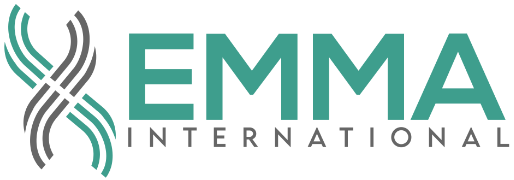The pharmaceutical industry’s response to changes in globalization is unique in that it is governed by ongoing demands, across the globe, for advanced medicines, and in particular, in emerging economies; a constant desire by pharmaceutical manufacturers to reduce Research and Development (R&D) costs; and the ongoing challenges to address inequality in clinical trials’ recruitment.1 In part I of this blog, I will address some of what the pharmaceutical industry has done, in collaboration with regulators, to deal with the said changes in globalization and the resulting challenges.
The extent of changes in globalization in recent years has brought about significant challenges to the pharmaceutical industry. One area that is worth noting is diversity in standards and regulations. Diversity in standards and regulations has brought challenges for regulatory authorities as they have struggled with how to enforce harmonization in regulations with changes in globalization. In particular, R&D facilities that are being launched in countries with underdeveloped regulations. The development, manufacturing, and subsequent distribution of drugs is governed by country specific, as well as international standards and regulations. As a result, governments are compelled to mitigate and confront this challenge.
The effect of changes in globalization on the pharmaceutical industry “has resulted in a decrease in exportation and domestic production, accompanied by an increase in importation of pharmaceuticals and a rise in prices and expenditures”2. Moreover, the US Food and Drug Administration (FDA) estimates that over 80% of active pharmaceutical ingredients (APIs) in drugs sold to the US market and 40% of finished drugs are sourced from outside the US3. China and India continue to lead as the main sources of pharmaceutical imports to the US. Although both China and India have reformed their Good Manufacturing Practices (GMPs), there is still incredible concern regarding enforcement of GMPs in R&D facilities4.
Due to this shift in globalization, companies are constantly moving manufacturing facilities to new and different locations to reduce production costs. Regulatory authorities have been acknowledging the need for more harmonization surrounding regulatory and GMPs compliance. This trend has been exacerbated by the growth of health-care systems in emerging economies5. As an example of the impact of globalization on the placement of big pharmaceutical companies, one only needs to look at the R&D operations of AstraZeneca and Novartis. AstraZeneca’s global hub for pharmaceutical development is now in Shanghai to complement its existing R&D facilities in the UK and Sweden. Switzerland is home to Novartis’s global headquarters which complement the company’s R&D facilities in China, India, Singapore, and the US. Sun Pharmaceuticals which is based out of India has expanded its R&D facilities to the US and Israel.
References
1Walker, N. (2019, October 28). Retrieved from www.pharmasalmanac.com: https://www.pharmasalmanac.com/articles/impacts-of-glocalization-on-the-pharmaceutical-industry
2Semin, S., & Güldal, D. (2008). Globalization of the pharmaceutical industry and the growing dependency of developing countries: the case of Turkey. International Journal of Health Services: 2008;38(2):379-398. doi:10.2190/HS.38.2.i
3Hamburg MA. “The Importance of PIC/S in Our Globalized World.” US Food and Drug Administration website. www.fda.gov/NewsEvents/Speeches/ucm257974.htm. Accessed 30 April 2012.
4Loscher, (2012) It’s a Small World: Collaboration and Harmonization in an Ever-shrinking World. Retrieved September 19, 2021, from https://www.raps.org/regulatory-focus%E2%84%A2/news-articles/2012/6/it%E2%80%99s-a-small-world-collaboration-and-harmonization-in-an-ever-shrinking-world5McKinsey (2016) Digital Globalization: The New Era of Global Flows. Retrieved September 20, 2021 from https://www.mckinsey.com/~/media/McKinsey/Business%20Functions/McKinsey%20Digital/Our%20Insights/Digital%20globalization%20The%20new%20era%20of%20global%20flows/MGI-Digital-globalization-Full-report.ashx






